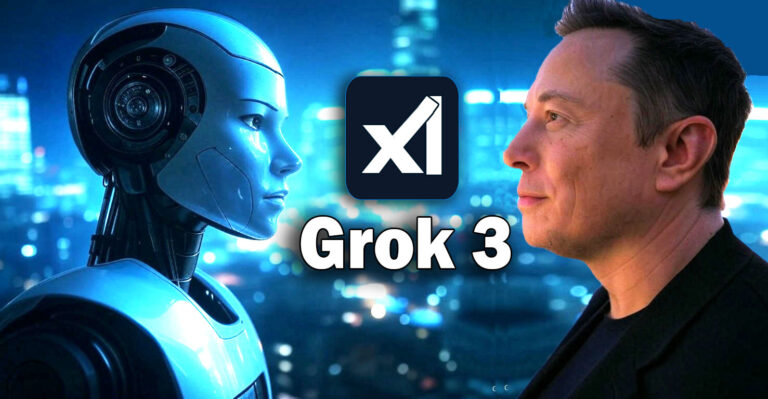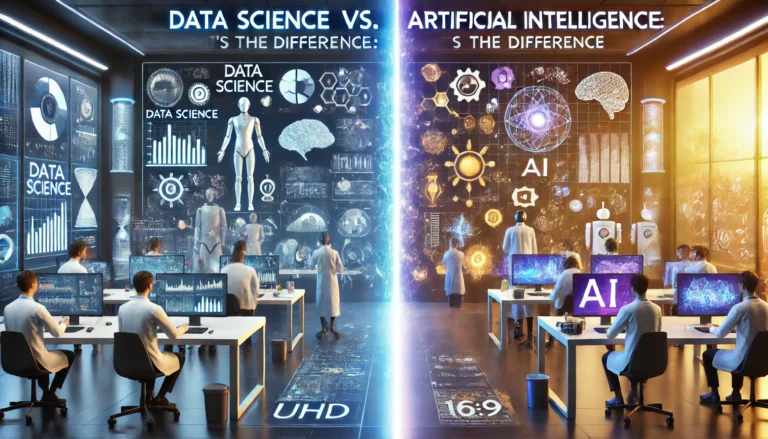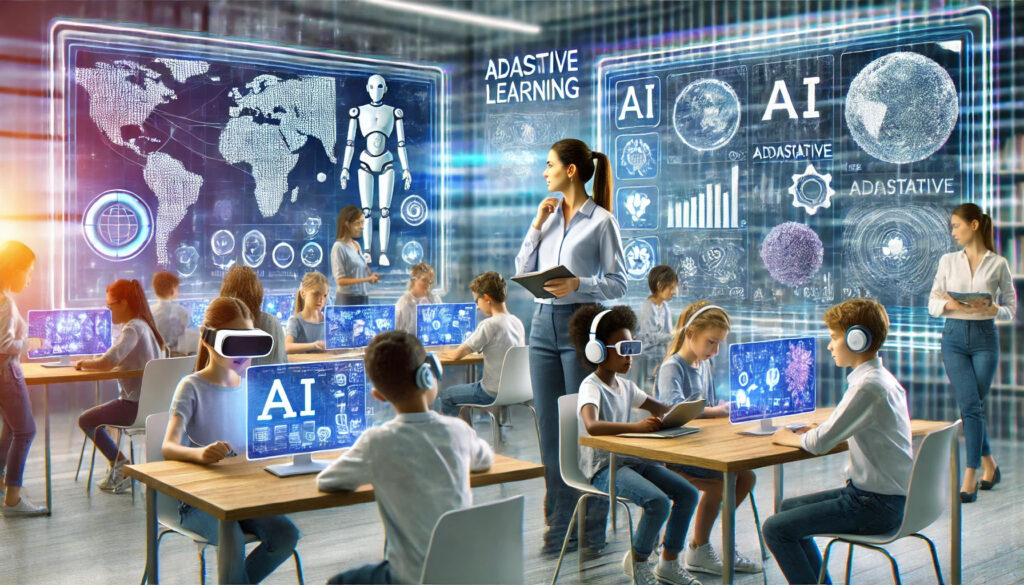
Artificial intelligence (AI) is no longer a futuristic concept. It has seamlessly integrated into our daily lives, influencing industries as varied as healthcare, entertainment, and finance. Education is another promising field where AI is poised to redefine traditional teaching and learning practices. This article delves into how AI is transforming education, from offering personalized learning experiences to improving accessibility and administrative efficiency.
The Current Challenges in Education
Despite its significant advancements, the traditional education system faces enduring challenges:
- Standardized Curricula: A one-size-fits-all approach often fails to cater to the diverse needs of students, leaving some unchallenged and others struggling.
- Administrative Burdens: Teachers spend a considerable amount of time on routine tasks, limiting their ability to focus on teaching.
- Inequality in Access: Quality education remains unevenly distributed, particularly across socio-economic and geographical divides.
AI has emerged as a solution to these problems, offering opportunities to make education more inclusive, efficient, and effective.
Personalized Learning: Education Tailored to Every Student
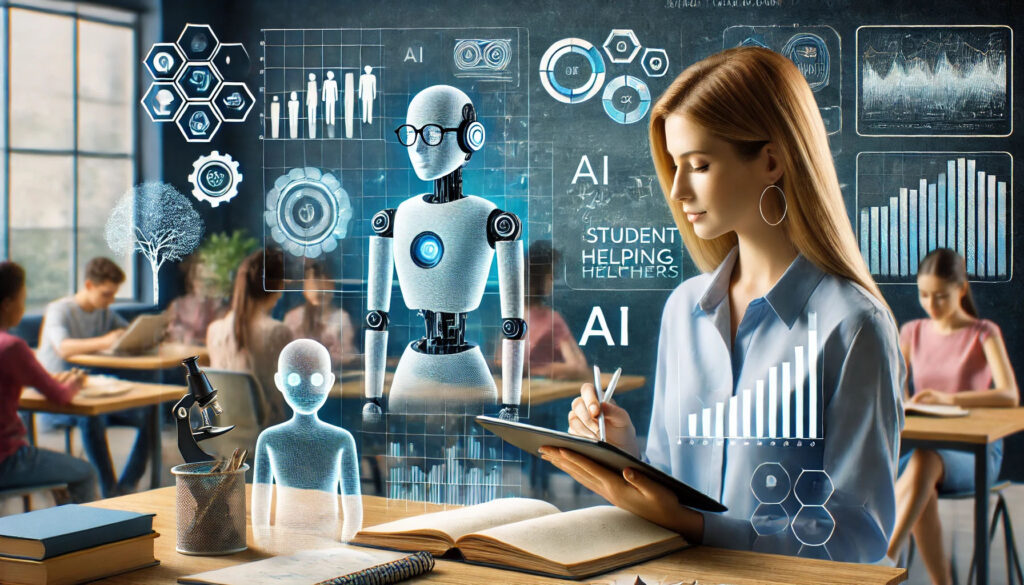
One of AI’s most impactful contributions to education is its ability to deliver personalized learning experiences. Traditional classrooms often struggle to accommodate individual learning paces and styles. AI-powered platforms are changing this dynamic by adapting to the unique needs of each learner.
Adaptive Learning Systems
AI tools can analyze a student’s strengths and weaknesses in real time, tailoring content to address specific gaps. For instance, platforms like Khan Academy and Duolingo use adaptive algorithms to adjust the difficulty level based on user performance.
Intelligent Tutoring Systems
AI-driven tutoring systems simulate one-on-one interactions, providing immediate feedback and customized guidance. Examples include Carnegie Learning’s MATHia and IBM Watson Tutor, which focus on personalized problem-solving and concept reinforcement.
Gamification and Engagement
AI can incorporate gamified elements into lessons, making learning more engaging and enjoyable. This approach not only increases student participation but also enhances knowledge retention.
Empowering Teachers Through AI
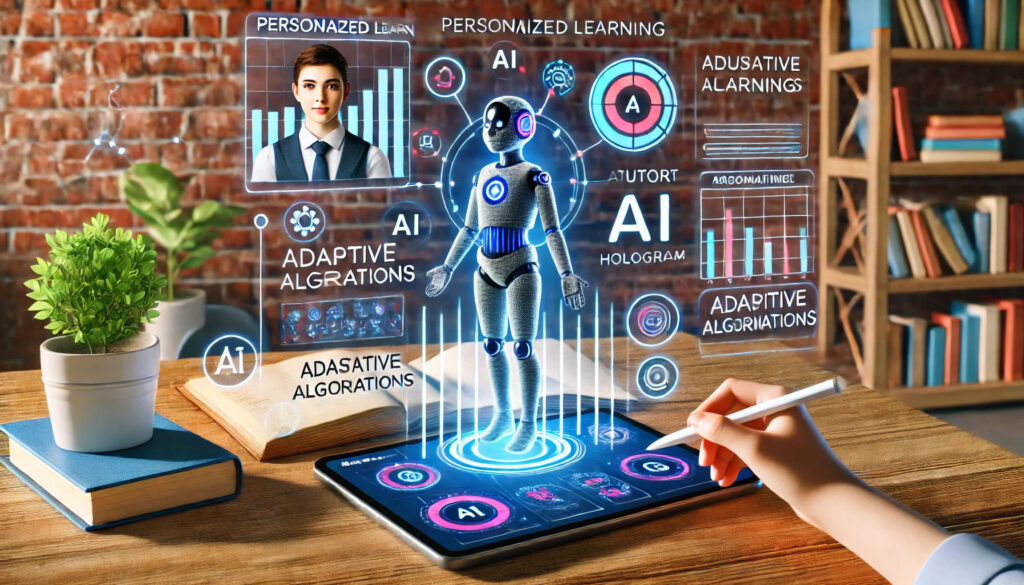
Teachers play an irreplaceable role in education, but their effectiveness is often hindered by administrative workloads and large class sizes. AI can alleviate these burdens, enabling educators to focus on teaching and mentorship.
Automated Grading
AI systems can handle routine grading tasks, such as multiple-choice and fill-in-the-blank questions, freeing up valuable time for teachers to concentrate on complex assessments and personalized feedback.
Curriculum Development
AI tools assist in creating curricula aligned with specific learning objectives and industry trends, ensuring relevance and effectiveness for students.
Professional Development
AI can identify areas where educators need improvement, offering tailored training programs to enhance their skills and teaching methods.
Bridging Accessibility Gaps
AI has the potential to democratize education by addressing barriers that prevent equal access to learning opportunities.
Language Translation
AI-powered translation tools, such as Google Translate, enable access to educational resources in multiple languages, breaking down linguistic barriers.
Remote Learning
AI-driven platforms facilitate remote education, ensuring students in rural or underserved regions can access quality teaching. Tools like Zoom and Coursera leverage AI to create interactive and engaging online learning environments.
Assistive Technologies
For students with disabilities, AI offers tools like speech-to-text applications, screen readers, and predictive text software. These innovations make learning more inclusive, allowing everyone to participate fully.
Harnessing Data for Better Outcomes
AI excels at processing vast amounts of data, making it a valuable resource for enhancing educational outcomes.
Learning Analytics
AI can analyze student performance data to identify patterns, predict outcomes, and recommend interventions, enabling proactive support for struggling learners.
Institutional Planning
By analyzing enrollment trends, resource allocation, and performance metrics, AI helps institutions optimize their operations and strategic planning.
Research Advancements
AI accelerates educational research by processing and interpreting complex datasets, paving the way for innovative teaching methodologies and learning theories.
Addressing Ethical Concerns
While AI offers significant benefits, its integration into education raises ethical questions that must be addressed:
- Data Privacy: The collection and storage of student data must comply with stringent privacy standards to prevent misuse.
- Algorithmic Bias: Ensuring AI systems are free from bias is critical for providing equitable education.
- Role of Educators: AI should complement, not replace, teachers, preserving the human element essential to learning.
The Road Ahead: AI’s Future in Education
As AI evolves, its role in education will expand further. Emerging technologies like virtual reality (VR) and augmented reality (AR) promise to create immersive learning environments. Blockchain could revolutionize the management of educational credentials, while quantum computing may enhance AI’s capabilities.
However, the successful integration of AI into education requires collaboration among educators, technologists, policymakers, and communities. Investments in infrastructure, training, and ethical frameworks will be vital to realizing AI’s full potential.
Conclusion
Artificial intelligence is reshaping education, addressing longstanding challenges and unlocking new opportunities. From personalized learning and teacher empowerment to global accessibility and data-driven insights, AI is transforming how we teach and learn. By embracing this technology responsibly, we can create a more inclusive, efficient, and effective educational landscape for future generations.

